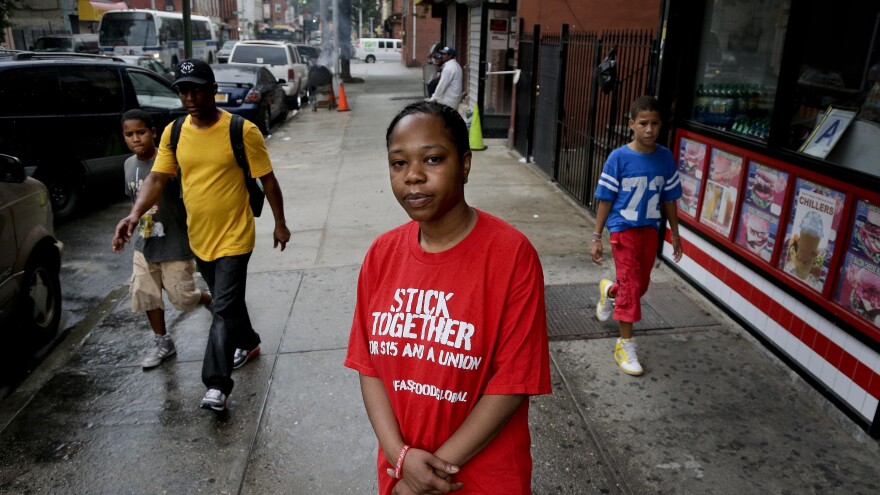As the year's end approaches, economists are looking back and assessing the news stories that shaped 2014.
Though their lists may vary, most analysts are pointing to five developments that had very big impacts on the U.S. economy. These were the biggies for 2014:
Oil Prices Plunge

No one saw this one coming. When 2014 began, a barrel of crude oil was selling for about $110. It hovered there until late spring, when the price ticked up to nearly $115.
And then, down, down, down went oil. Month after month, the price plunge continued until a barrel got below $55 this month.
Seeing oil prices cut in half has left economists stunned and rethinking their predictions for inflation. Most consumers are thrilled to see cheap gasoline, but oil-producing companies and nations are scrambling to cope.
Wage Stagnation

Despite strong profits for corporations, raises for workers remained meager.
Month after month throughout 2014, the Labor Department's jobs report showed no meaningful increase in average hourly earnings. Congress did not raise the federal minimum wage of $7.25 an hour, and most employers provided only tiny pay increases for more-skilled workers.
The Bureau of Labor Statistics said average hourly earnings in November were $24.66, up just 51 cents from last year. Adjusted for inflation, that increase amounted to 0.8 percent for the year.
U.S. Economy Soars Above Others
The year started poorly for Americans, thanks to unusually harsh winter weather that derailed plans for building, spending and traveling. But with the spring came an economic warming.
In fact, by summer, growth was running hot. The Bureau of Economic Analysis says it advanced at an annualized 3.9 percent over July, August and September. That growth generated many more job openings, as well as new revenues that helped shrink the federal budget deficit.
Even as the U.S. economy was expanding, other nations were struggling. In Europe, Japan, China, India, Brazil and elsewhere, companies saw profits shrivel and gloom spread. Russia's economy vaporized. As everyone else fell back, the dollar strengthened and the United States emerged as the world's only real engine of growth.
Stocks Shoot Up; Interest Rates Don't
The stock market continued its long run up, with the S&P 500 stock index gaining roughly another 11 percent for the year. Those gains came as interest rates continued to cling to their historic lows.
Stock prices for existing tech companies were mixed, with investors loving Apple Inc. but moving away from the so-called cloud sector.
One thing was not mixed: Investors' desire for shares of new companies. One example: LendingClub, an online loan marketplace, chalked up a 56 percent gain on its first day of trading.
Hack Attacks Spread Fear
Whether you were a Sony executive or a Home Depot customer, 2014 was a bad year for cybersecurity. Emails got hacked and personal information was stolen, and economic havoc was heaped upon companies.
Both corporations and consumers are struggling to respond to the growing threats, but what can be done to boost security is not yet clear.
Copyright 2021 NPR. To see more, visit https://www.npr.org.




